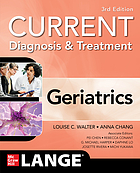If you have an exact title add ti= (eg. ti=Emergency Medicine)

In March we further increased the resources and guidance on our website. For clinicians at Monash Children’s Hospital, we added relevant paediatric resources – including eBooks, guidelines, and videos – to many of our online clinical resource guides. Our guides provide curated resources for 40 clinical specialties.
We also have a new clinical resource guide on wound care, useful for nurses, OTs, physiotherapists, and others working in rehabilitation, aged care, geriatrics, and surgery. It provides key links and guidance alongside recommended eBooks, journals, and educational resources. Visit our new Apps Guide to see our pick of the best mobile apps for health professionals. In addition to clinical decision support tools such as UpToDate, the highlighted apps provide quick access to clinical practice guidelines, research and education material, and more.

Our collection is always evolving. See a full list of our new books here.
 Current Diagnosis & Treatment: Geriatrics
Current Diagnosis & Treatment: Geriatrics
Understanding statistics 1: Presenting data from clinical trials is an interactive 30-minute module available to all Monash Health employees via BMJ Learning. Register for an individual account with BMJ Learning to begin learning online. For further guidance, we also have books in our catalogue such as SPSS Survival Manual and Presenting Medical Statistics.
Covidence – an online collaboration tool designed for systematic reviews – has announced a scholarship program for those completing a Master's or PhD involving a systematic review. Remember: you can join our subscription to Covidence or request a workspace.
UpToDate news: ‘The Basics’ topics for patient information are now also available in Arabic. Access via the Language dropdown menu (see below) found beneath each topic under Information for Patients. You can also view patient information from your search results using the Patient tab.

Rising case numbers and a fourth vaccine dose have been prominent issues this month. Recent commentary in The Lancet Infectious Diseases discusses the successes and ongoing challenges of a rapid vaccine rollout. Meanwhile, lagging vaccination rates in Australian children may be due to “a complex mix of access and acceptance barriers for parents”.
The second anniversary of the pandemic also sparked a flurry of retrospectives. An article from the Australian Bureau of Statistics – based on registered deaths, rather than health surveillance data – tracks COVID-19 deaths over time and shows the most common pre-existing chronic conditions.
Selected COVID-19 articles:

Sports injury hospitalisations in Australia, 2019-2020, published by the Australian Institute of Health and Welfare (AIHW), reports a significant reduction in injuries compared to the previous year and a rise in injuries from solo sports after COVID-19 restrictions began. The National COVID-19 Clinical Evidence Taskforce has released a new risk classification tool to guide decision-making for drug treatments in adults with mild COVID-19. Strengthening COVID-19 vaccine demand and uptake in refugees and migrants – recently released by the World Health Organisation (WHO) -- provides operational guidance including social media monitoring and community engagement.

Explore our range of journals on BrowZine.